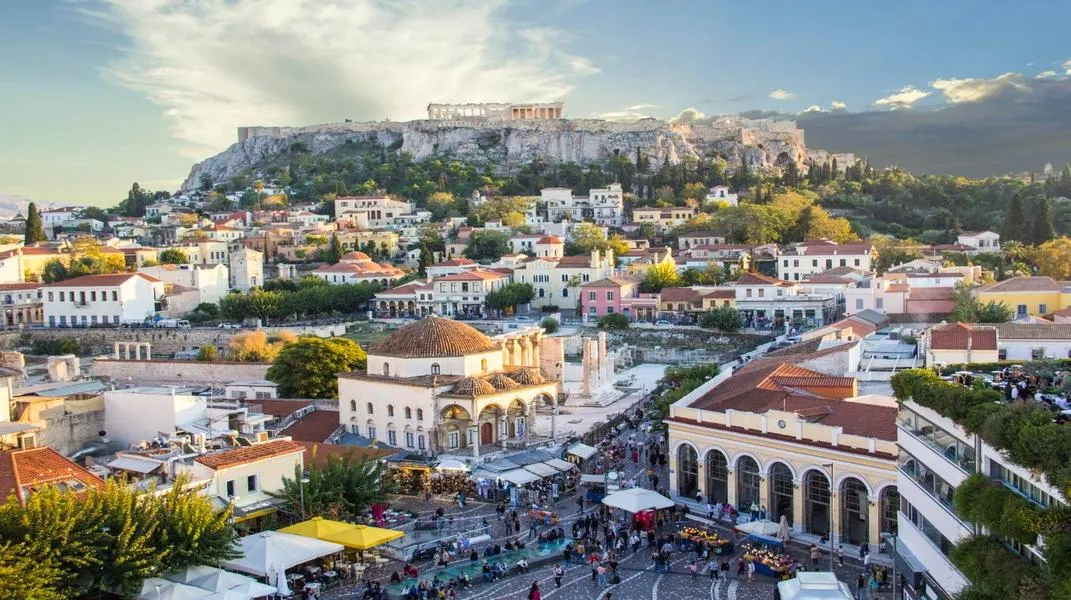Exploring Athens: A Comprehensive Guide to Greece's Historic Capital
Athens, the cradle of Western civilization, is a city steeped in history, culture, and beauty. From the majestic Acropolis to the bustling streets of Plaka, Athens is a treasure trove of ancient ruins, vibrant neighborhoods, and mouthwatering cuisine. Whether you're a history buff, an art enthusiast, or a culinary adventurer, Athens offers something for every traveler. In this guide, we'll delve into the must-visit attractions, provide tips for preparation, and outline everything you need for an unforgettable experience in this enchanting city.

The Historical Significance of Athens
Athens is not only the capital of Greece but also one of the oldest cities in the world, with a history spanning over 3,400 years. It is renowned for its contributions to art, philosophy, and democracy. The city was home to great thinkers like Socrates, Plato, and Aristotle, and it was a hub for the arts, giving rise to timeless works by playwrights such as Sophocles and Euripides. Today, Athens stands as a testament to its glorious past, with ancient monuments and archaeological sites that reflect its storied heritage.
Must-Visit Attractions
1. The Acropolis
The Acropolis is undoubtedly the crown jewel of Athens. Dominating the skyline, this ancient citadel houses some of the most iconic structures of classical antiquity, including the Parthenon, the Erechtheion, and the Temple of Athena Nike.
- The Parthenon: Built in the 5th century BC, this temple dedicated to the goddess Athena is a symbol of Ancient Greece and democracy. Its Doric columns and intricate sculptures are stunning examples of ancient architecture.
- The Erechtheion: This temple is known for its unique asymmetrical design and the famous Caryatids, six elegantly draped figures that serve as columns.
- Temple of Athena Nike: This small temple celebrates the goddesses of victory and is renowned for its exquisite friezes and delicate proportions.
Tip: Visit early in the morning to avoid crowds and take advantage of the soft morning light for photography.
2. Acropolis Museum
Just a short walk from the Acropolis, the Acropolis Museum is a modern architectural marvel that houses artifacts and sculptures from the Acropolis site. With its glass floors, you can see the archaeological excavations below while admiring the stunning collections above.
- Must-See Exhibits: The Parthenon Gallery, which showcases the Parthenon sculptures, and the Archaic Gallery, featuring statues from the 7th to 5th century BC.
Tip: Allocate at least two hours to explore the museum fully. Consider joining a guided tour to gain deeper insights into the exhibits.
3. Ancient Agora
The Ancient Agora was the heart of public life in ancient Athens, serving as a marketplace, civic center, and hub for philosophical discussions. Key structures include:
- Stoa of Attalos: A reconstructed portico that now serves as a museum showcasing artifacts from the Agora.
- Temple of Hephaestus: One of the best-preserved ancient temples, dedicated to the god of craftsmanship.
Tip: The Agora is a great place to enjoy a leisurely stroll, surrounded by ancient ruins and the stunning backdrop of the Acropolis.
4. Plaka Neighborhood
Plaka, often referred to as the "Neighborhood of the Gods," is a charming area filled with narrow streets, neoclassical buildings, and vibrant shops. Here, you can find everything from traditional tavernas to artisanal boutiques.
- Dining: Try local specialties such as moussaka, souvlaki, and baklava at one of the many tavernas.
- Shopping: Browse for handmade jewelry, leather goods, and traditional Greek products.
Tip: Spend an afternoon wandering the streets of Plaka, soaking in the lively atmosphere and sampling delicious street food.
5. Mount Lycabettus
For breathtaking panoramic views of Athens, hike or take a funicular to the summit of Mount Lycabettus. At 277 meters high, it is the highest point in the city.
- What to Expect: Stunning vistas of the Acropolis, the Aegean Sea, and the sprawling urban landscape of Athens.
- Dining: There’s a restaurant at the top where you can enjoy a meal while taking in the views.
Tip: Sunset is the perfect time to visit, as the city lights begin to twinkle against the backdrop of the setting sun.
6. National Archaeological Museum
As one of the most important museums in the world, the National Archaeological Museum houses a vast collection of artifacts from various periods of Greek history.
- Highlights: The Mask of Agamemnon, sculptures from the Parthenon, and the Antikythera Mechanism, an ancient analog computer.
Tip: Allocate a few hours to explore this museum, and consider purchasing a combined ticket for the Acropolis and the museum for a better deal.
Preparing for Your Visit
Essential Materials and Tips
- Travel Documents: Ensure you have your passport, necessary visas, and travel insurance.
- Accommodations: Book your stay in advance. Popular areas include Plaka, Syntagma, and Monastiraki for easy access to attractions.
- Comfortable Footwear: Athens is best explored on foot, so bring comfortable shoes for walking on cobblestone streets and uneven terrain.
- Weather-Appropriate Clothing: Check the weather forecast before you go. Summers are hot and dry, while winters can be mild but rainy. Layers are recommended for spring and fall.
- Sunscreen and Hats: Protect yourself from the sun, especially when visiting outdoor sites like the Acropolis.
- Portable Charger: Your phone will be your best friend for navigation and taking photos, so a portable charger is essential to keep your devices powered throughout the day.
- Water Bottle: Stay hydrated, particularly during the hot summer months. Many sites have drinking fountains.
- Camera: Capture the stunning sights of Athens, but be respectful of photography rules at certain historical sites.
- Guidebook or App: Consider downloading a travel app or purchasing a guidebook for detailed information on the sights, dining, and local customs.
- Local Currency: The Euro is the currency of Greece. It's advisable to have some cash on hand for small purchases, though credit cards are widely accepted.
- Learn Basic Greek Phrases: While many locals speak English, learning a few basic Greek phrases can enhance your experience and show respect to the culture.
Cultural Etiquette
- Dress Modestly: When visiting churches or monasteries, dress modestly and cover your shoulders and knees.
- Respect Local Customs: Greeks are known for their hospitality. A friendly greeting and a smile go a long way.
- Tipping: While not compulsory, leaving a small tip for good service is appreciated.
- Dining Etiquette: Meals are often served family-style. Don’t hesitate to share dishes and try a bit of everything!
Conclusion
A visit to Athens is a journey through time, where you can walk in the footsteps of philosophers, admire breathtaking architecture, and savor delicious cuisine. With its rich history, vibrant culture, and warm hospitality, Athens is a city that captivates the hearts of travelers from around the world. By preparing well and embracing the local customs, you can ensure a memorable experience that will stay with you long after you leave this ancient city. So pack your bags, lace up your walking shoes, and get ready to explore the wonders of Athens!




